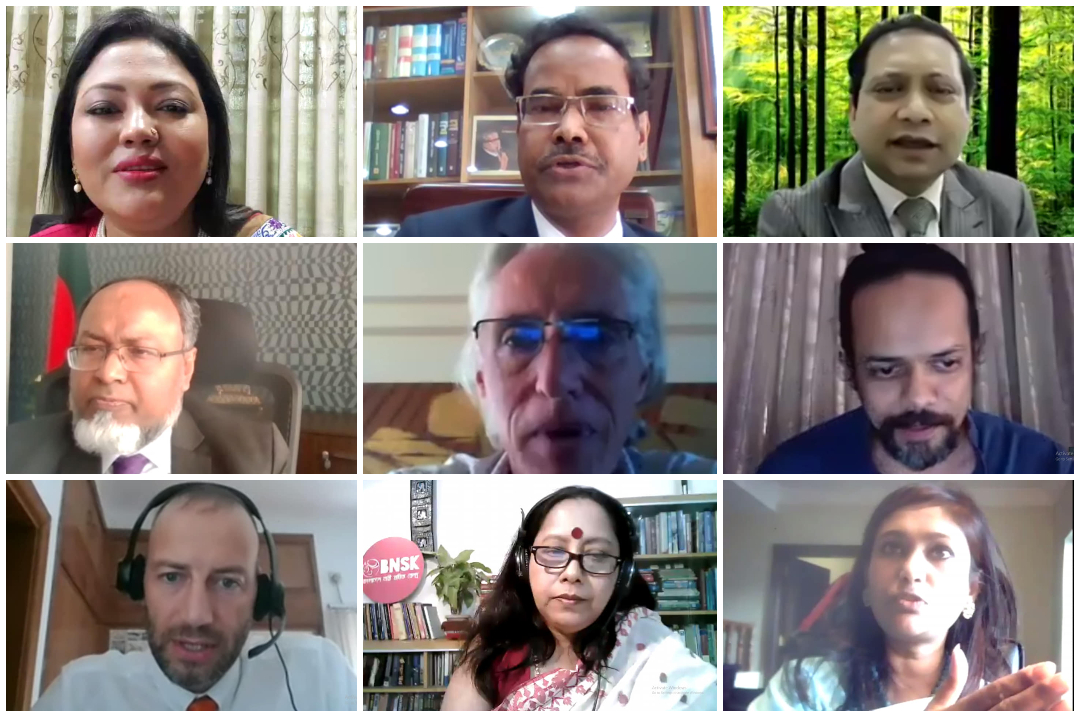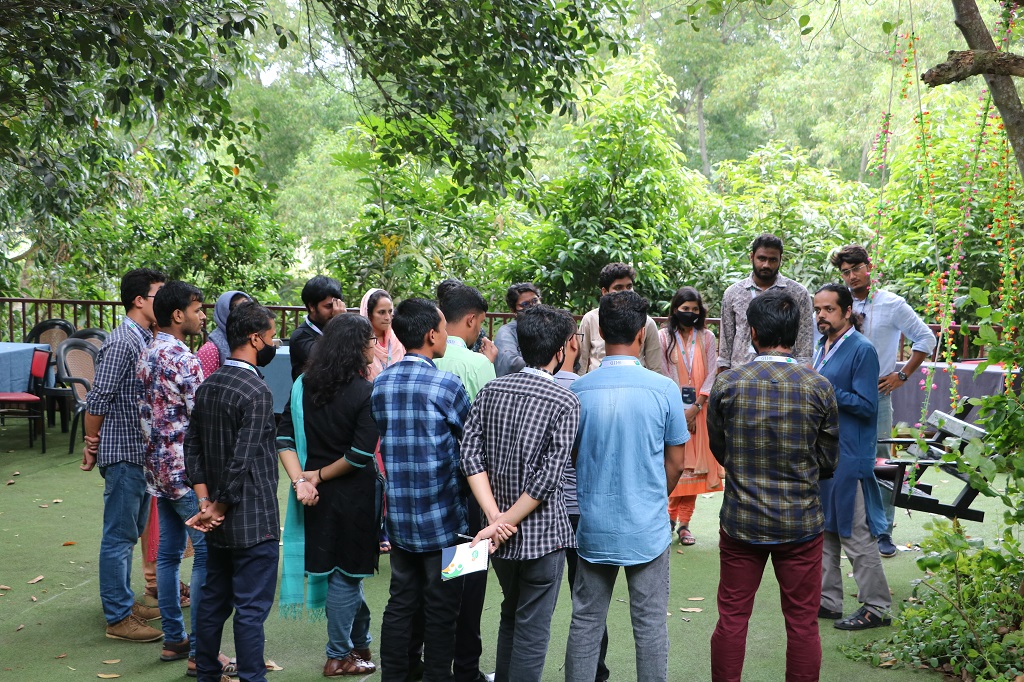The Independence of Bangladesh was influenced by the ethos to establish a country where the underlying philosophy of development policies were equity and justice. As Bangladesh marks 50 years of independence, global attention is focused on the remarkable economic and social progress the country has achieved in recent decades. Bangladesh has transformed into an Asian Tiger economy with high per capita income, diminishing poverty, buoyant forex reserve, food security, higher life expectancy and gender parity through the tenacity of the people and their will to adapt to changing times. However, the fruits of all this progress are yet to be distributed equally among the citizens as we continue to lag in many areas of social inclusion.
As Bangladesh celebrates 50 years of independence, the Policy Conclave on the Future of Work and Social Justice convened over 15 parliamentarians in Cox’s Bazar to explore and strengthen parliamentarians’ roles in ensuring equality and social justice—a fundamental promise of Bangladesh’s independence. The event was co-hosted by the newly formed Parliamentarians Caucus on Social Justice and Institute of Informatics and Development (IID) from 10 to 13 October 2021.
The parliamentary caucus on social justice will function under the chairmanship of Anwarul Abedin Khan MP and the Deputy Speaker Md. Fazle Rabbi Miah MP as the Chief Advisor. Institute of Informatics and Development (IID) will remain the secretariat of the Caucus.
The parliamentarians openly discussed the existing gaps and barriers to social inclusion and outlined actionable solutions for ensuring social justice in the coming years, with a particular emphasis on inclusive employment, entrepreneurship, and skills development opportunities for all.
The three-day event was divided into topic-specific sessions which focused on politics and social inclusion, climate justice and equity, employment equity, and the future of work and skills.
Day-1 saw the participants attending an informal dinner and networking session. The next day (Day-2) the formal inaugural session was held with a welcome speech by Shameem Haider Patwary MP, Anwarul Abedin Khan MP, and Mahjabeen Khaled Former MP, and Syeed Ahamed, CEO of IID highlighted the purpose of establishing a social justice caucus and briefed on what to expect from this two-day event.
The first session of the event was on Bangladesh’s Journey towards Social Justice during which parliamentarians discussed Bangladesh’s progress to date and highlighted the major concerns and needs of marginalized people in their constituencies. Moreover, the Parliamentarians underlined the importance of an intersectional lens when developing inclusive policy, since marginalized groups confront a variety of obstacles depending on their social identities. Shameem Haider Patwary MP acted as the facilitator of the session.
Gloria Jharna Sarker MP facilitated the next session Social Inclusion in Politics which focused on the role of parliamentarians in promoting gender and social inclusion in politics. The session explored the ways in which social exclusion and inequality create impediments to political inclusion, particularly for women.
The Employment Equity session, moderated by Rana Mohammad Sohail, MP, highlighted the importance of ensuring that workplaces are accessible to all members of our communities, including historically marginalized groups in the labor market. The Parliamentarians discussed taking measures to ensure that members of designated groups not only have equal access to jobs, but also have a work environment that encourages them to stay and advance within their organizations. It is critical to include special measures such as training and career development opportunities for all designated group members, particularly for groups like – the sweeper community, horijon people, as well as accommodations for individuals with disabilities.
The third and last day of the event started with a session on Climate Justice and Equity which discussed the disproportionate problems disadvantaged groups face such as loss of income and assets, and physical, financial, human, and social losses due to climate change and disasters. Bangladesh, as one of the most vulnerable countries, is likely to be among the worst hit by climate change’s impacts, with an estimated ten million climate refugees, primarily from coastal regions, over the next few decades. While Bangladesh must consider how to deal with the inevitable millions of climate migrants, there should also be strategies in place to turn the problem into a solution. Members of parliament emphasized the importance of ensuring access to education, health care, affordable housing, and employment opportunities in a few secondary towns throughout the country where climate-induced migrants can start a new life. It will alleviate capital pressures and allow future climate-induced migrants to move with dignity rather than under duress.This discussion was facilitated by Tanvir Shakil Joy MP.
In the final session of the event, Future of work and skills, the parliamentarians emphasized the importance of highlighting several key components, including skills-based education, developing a skilled workforce, financial support for start-ups, investment in automation and digitisation, and equal access to information and services. A holistic approach should be taken to, for example, any training, and the state or development actors should ensure space for implementing or demonstrating the learning, as well as financial support for start-ups based on acquired knowledge, skills, and training. There should be a clear connection between knowledge and skill acquisition and application.
The policy conclave concluded with members of the Parliamentarians Caucus on Social Justice pledging to work together to ensure social justice for the citizens of Bangladesh not just on paper, but also in practice.
Among others, Ahsan Adelur Rahman MP; Shafiqul Islam Shimul MP; Md Sanowar Hossain MP; Shamsun Nahar MP, Mohd Salim Uddin Tarafder MP; Mujibur Rahman Chowdhury MP; Anwar Hossain Helal MP; Moazzem Hossain Ratan MP; Asheq Ullah Rafiq MP; Tom Burge, Counsellor, Governance and Political Team,British High Commission, Dhaka; Gerry Fox, Team Leader, PROKAS, British Council; and Shirin Lira, Sr. IBP Manager and Gender & Social Inclusion Adviser, PROKAS were also present at the event.
The event facilitated a healthy exchange of ideas and information between the parliamentarians on how to safeguard the rights of our country’s socially excluded citizens by formulating better and more inclusive laws.















